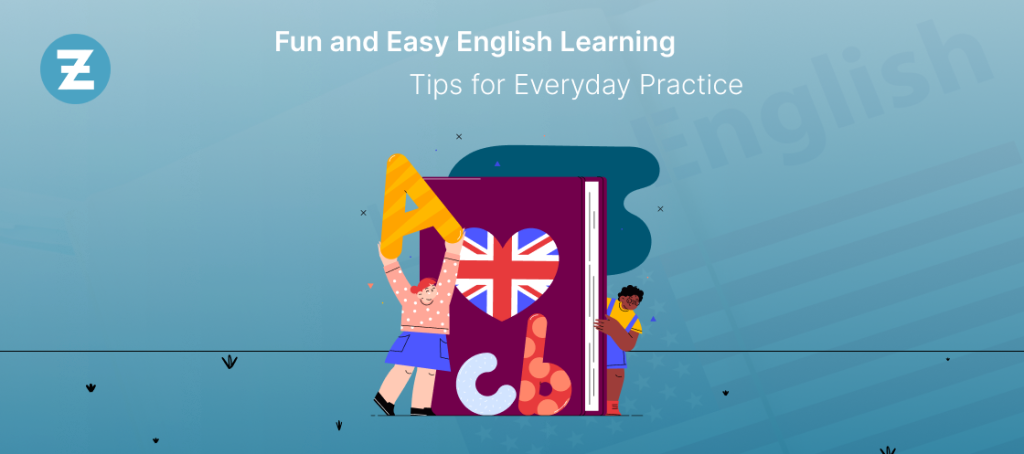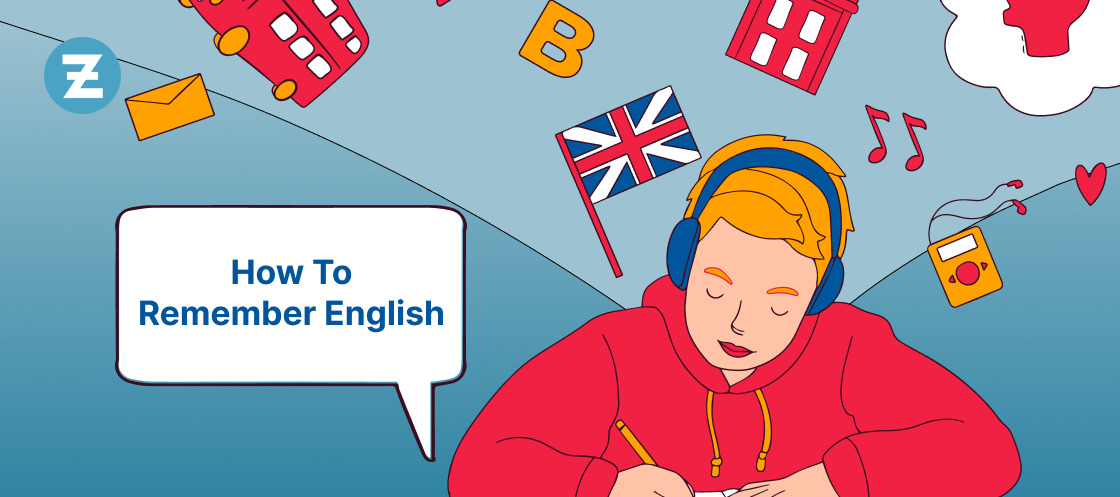Learning a new language can be difficult, but it doesn’t have to be. Especially if you already know English. English is used throughout the world, and quite frankly it’s not hard to see why. Being able to communicate in it will open up your doors to more opportunities. And make you feel accomplished. In this blog post, we’ll go over some very interesting and unique ways that can help you learn the ins and outs of English without having to sit down every day for hours on end.
1. Dive into English Media
Media surrounds us, so why not take advantage of that? Movies, tv shows, music, and podcasts all offer a unique way to learn sounds. Something that can be hard to pick up sometimes when learning a new language is pronunciation. To better comprehend how certain words are said tune into native speakers who do just that in media forms. Now let’s address the elephant in the room: subtitles. Turning on captions will give you an understanding of what’s going on in whatever you’re watching, as well as how it’s spelled too.
2. Read English Documents
Reading is good for your brain regardless of what language you do it in. But how about that vocab increase? By reading articles and books in English daily you’ll find out just how fast your skills improve over time. Start by reading simple things like children’s books then work your way up to more complex ones like novels or even textbooks!
3. Swap Languages With Someone
Talking back and forth with someone who speaks the language natively has a lot of benefits. Language exchange programs give you the opportunity to do that with ease or find a language partner instead on Tandem or conversationexchange.com. Having conversations regularly will improve how you speak and give you insight into the culture of where the language comes from.
4. Start a Language Learning Challenge with Friends
One way to learn English is by challenging your friends to do it with you. Celebrate the little victories and set achievable goals. Doing this will make learning fun, engaging, and overall enjoyable.
5. Play Language Learning Games
It’s hard to sit down and read or listen to something when you’re bored out of your mind. This is where games come in. Many apps have interactive lessons that make it easier and less boring. Some popular ones include Duolingo, Babbel, and WordBrewery.
6. Use Flashcards and Sticky Notes
Flashcards aren’t just for studying in school. They help engrave certain things into our brain no matter how much we try to forget it. Write down English words on sticky notes and put them all over your house so you can subconsciously remember them. The same thing goes for flashcards which are also very portable.
7. Sing Your Heart Out
Karaoke isn’t just an embarrassing pass time to do with friends. It helps improve pronunciation and the rhythm of speech for any language including english. Singing along to songs in english is a great way to practice speaking without even realizing it.
8. Try English Stand-Up Comedy
Give English Stand-Up Comedy a Watch When you watch English stand-up comedy shows online, you’ll find that the comedians are known to use wordplay, idiomatic expressions, and cultural references in their routines. It’s more than entertaining. They’re educational too.
9. Host English Movie Nights
Invite your friends or family over for English movie nights at your house. Find movies with English subtitles and after watching them, start a discussion. This will help improve your analytical skills, conversational skills, and overall understanding of the language.
10. Put Together a Language Learning Playlist
Put together a playlist of songs that have mostly english lyrics. Print out the lyrics and sing along to them whenever they play. Really pay attention to how they say certain words. Doing this can not only be fun but also help improve your listening skills and how you sound when speaking.
11. Engage in Online Conversations in English
Finding forums or social media platforms where people converse in english might be tough at first but can do wonders once you find it. Engaging with folks like this will boost your confidence and provide you with practical language usage experience. You can use sites like Reddit, Quora, or even join Facebook groups when looking for a good place to start
| Transform Learning into Fun! |
12. Experiment with English Cooking Shows & Recipes
Use English Recipes When You Cook Give your love for eating and language a whirl. Teach yourself imperative sentence structure and boost your food vocab by following English recipes. Even challenge yourself by trying out new recipes and seeing how well you can understand the cooking lingo in English.
13. Art and Crafts in English
There are plenty of art tutorials online, but use ones that follow the English tongue. Not only will these teach you how to create beautiful pieces, but they’ll also help you improve English in an engaging way.
14. Label Everything
Starting from all the items in your home, put sticky notes on them with their names written in English. It’s simple but effective when it comes to memory reinforcement, not to mention it’ll also help you associate words with objects that are already familiar to you.
15. Start a Language Diary
Keep a journal where all entries are written in English. It can be about whatever you like such as your day, thoughts, or even short stories. Doing this on a regular basis will help with grammar, spelling, and overall writing skills. Remember this isn’t something where perfection is strived for, so go ahead and make mistakes without worry!
16. Watch English Tutorials
Learn English Through YouTube Videos and Tutorials A ton of videos on YouTube have one thing in common: they teach you something new. If you’re an artist, there are thousands of videos showing you how to draw. A budding cook? There’s a recipe for everything. Try finding an instructional video, just like the ones that make cooking easier.
17. Watch Documentaries in English
If you ask me, documentaries are one of the best things to come out of modern TV streaming. They cover a lot of things, from your favorite animals to space exploration. So if you love learning about anything and everything, try watching some documentaries.
18. Write Letters or Emails in English
To polish up your writing skills, start drafting letters or emails in English for friends or pen pals. This is a good way to improve both grammar and vocabulary as it’s all put down on paper (or screen).
19. Engage in Mindfulness Activities with an English Instructor
Practicing mindfulness is a great way to reduce stress. Engage in these activities with an English speaking instructor and it’s even better. It works because this practice requires you to follow instructions, which exposes you to vocabulary you don’t normally encounter.
20. Play Board Games Made for Learning English
Board Games That Teach English Scrabble and Bananagrams are perfect examples of board games that’ll challenge your vocabulary knowledge. You can play them with family or friends and have a good time while retaining the information you learn.
21. Practice English Riddles and Puzzles
Riddles and Puzzles To Improve in English Increase your skill in complex problem solving and puzzle through riddles and puzzles that use English. Riddles test your ability to recognize language nuances, while puzzles like crosswords and Sudoku build up your vocabulary in a fun way.
22. Watch English Cartoons and Animated Series
If you want to watch cartoons or animated series, find them in English with subtitles on. The simple language and clear pronunciation they use make it the perfect learning tool for any age.
23. Challenge Yourself with Language Challenges
Put yourself through language challenges such as writing poems every day, speaking for a few minutes about a random topic, or even trying your hand at writing short stories. Don’t worry about being perfect, these are designed to push your limits and get you practicing consistently.
Conclusion
In conclusion, adding these interesting tips into your daily routine can improve your experience with learning English. Remember to be consistent, even just a few minutes of practice each day can help. Dedicate yourself and keep a good attitude and you’ll be amazed at how quickly you become more fluent in no time!
For more resources and interactive language learning activities visit ZoundsLike. Happy Learning!
FAQ:
Q1: Can everyday activities at home contribute to English learning?
A1: Absolutely! Everyday activities like cooking, watching TV shows, reading books, and even playing board games can be turned into English learning opportunities. Labeling items in English, following recipes, or discussing plots with family members can enhance vocabulary and language skills.
Q2: What role do language learning apps play in making English learning fun?
A2: Language learning apps often incorporate gamification elements, turning the process of learning into a game. These apps offer interactive lessons, challenges, and rewards, making the learning experience enjoyable and engaging for users of all ages.
Q3: Can watching English YouTube channels help in language learning?
A3: Yes, watching English YouTube channels related to topics you’re interested in can improve your listening skills and introduce you to diverse vocabulary. Educational channels, travel vlogs, and tutorials provide engaging content for language learners.
Q4: Are there any benefits to learning English through games and puzzles?
A4: Yes, playing games and solving puzzles in English improves cognitive skills, enhances vocabulary, and sharpens problem-solving abilities. Word games, crosswords, and Sudoku in English challenge your mind while expanding your language knowledge.








